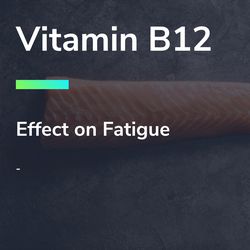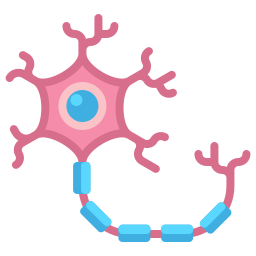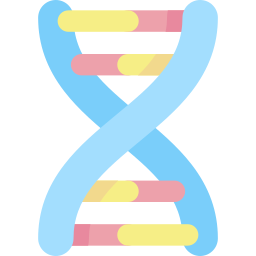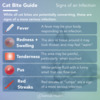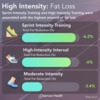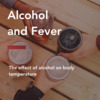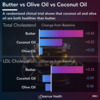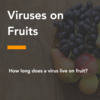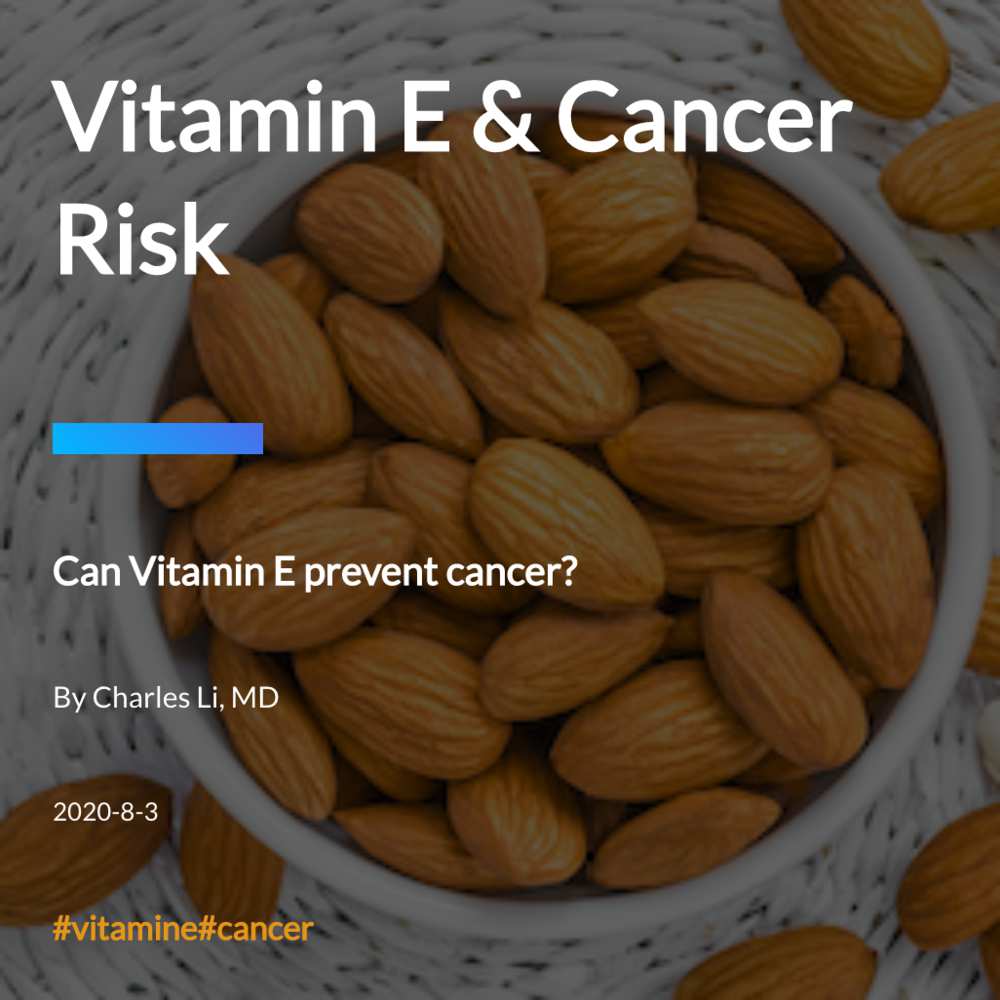
Key Facts

1. Vitamin E is an antioxidant
Vitamin E is believed to potentially prevent cell and DNA damage through its antioxidant properties.

2. Trials have not shown benefits yet
So far, clinical trials have been disappointing. They have not shown clear benefits for taking Vitamin E when it comes to cancer prevention.

Risks of Vitamin E
In fact, Vitamin E supplements have been shown to increase risk of prostate cancer for men.
Theory Behind Vitamin E & Cancer
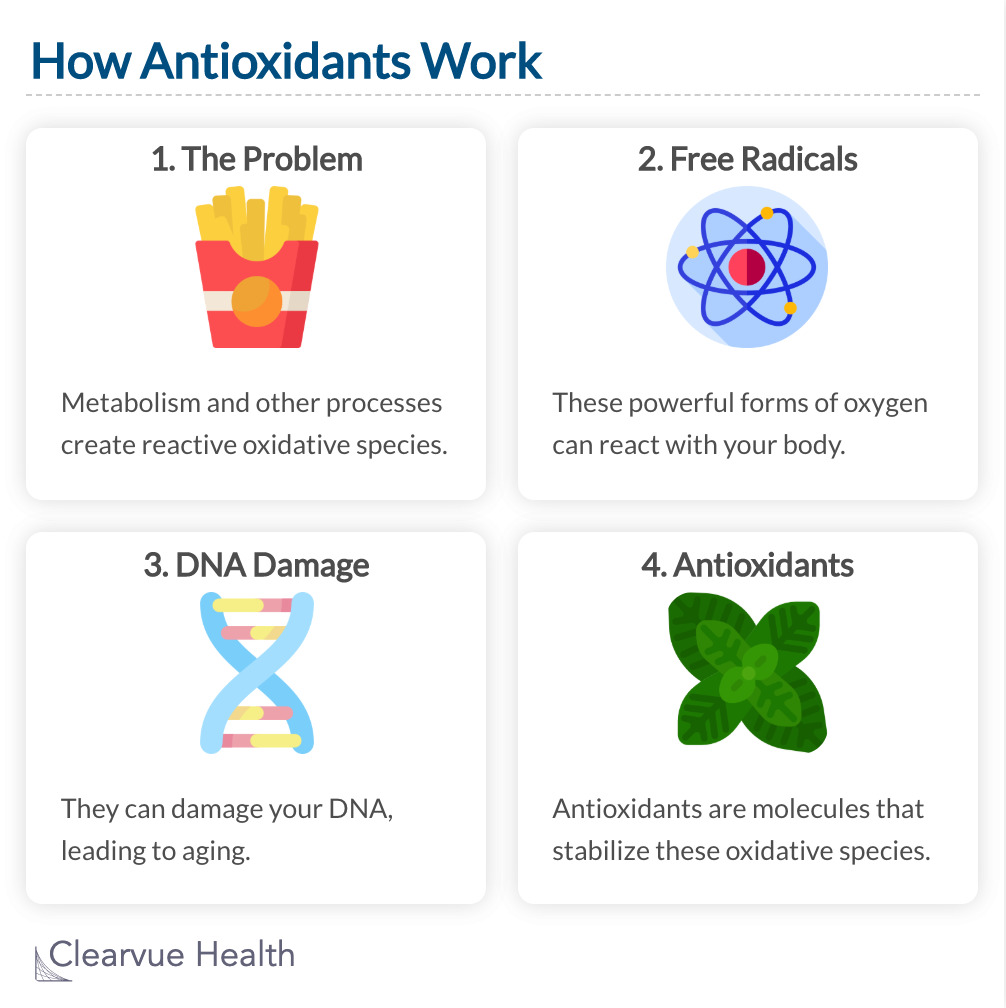
How Antioxidants Work: Metabolism and other processes create reactive oxidative species. These powerful forms of oxygen can react with your body. They can damage your DNA, leading to aging. Antioxidants are molecules that stabilize these oxidative species into harmless molecules.
Key Facts
Examples

How they work
Antioxidants prevent cell damage by counteracting free radicals.

Effect on Disease
Research on Antioxidants and disease prevention has shown mixed results.
Common Sources

Chocolate

Berries & Fruit

Coffee

beta-carotene
Your body makes vitamin A with beta-carotene, commonly found in carrots.

Vitamin C
Found in all sorts of fruits, Vitamin C is a very commonly consumed antioxidant.

Vitamin E
Vitamin E can be found in nuts and seeds.

Study 1
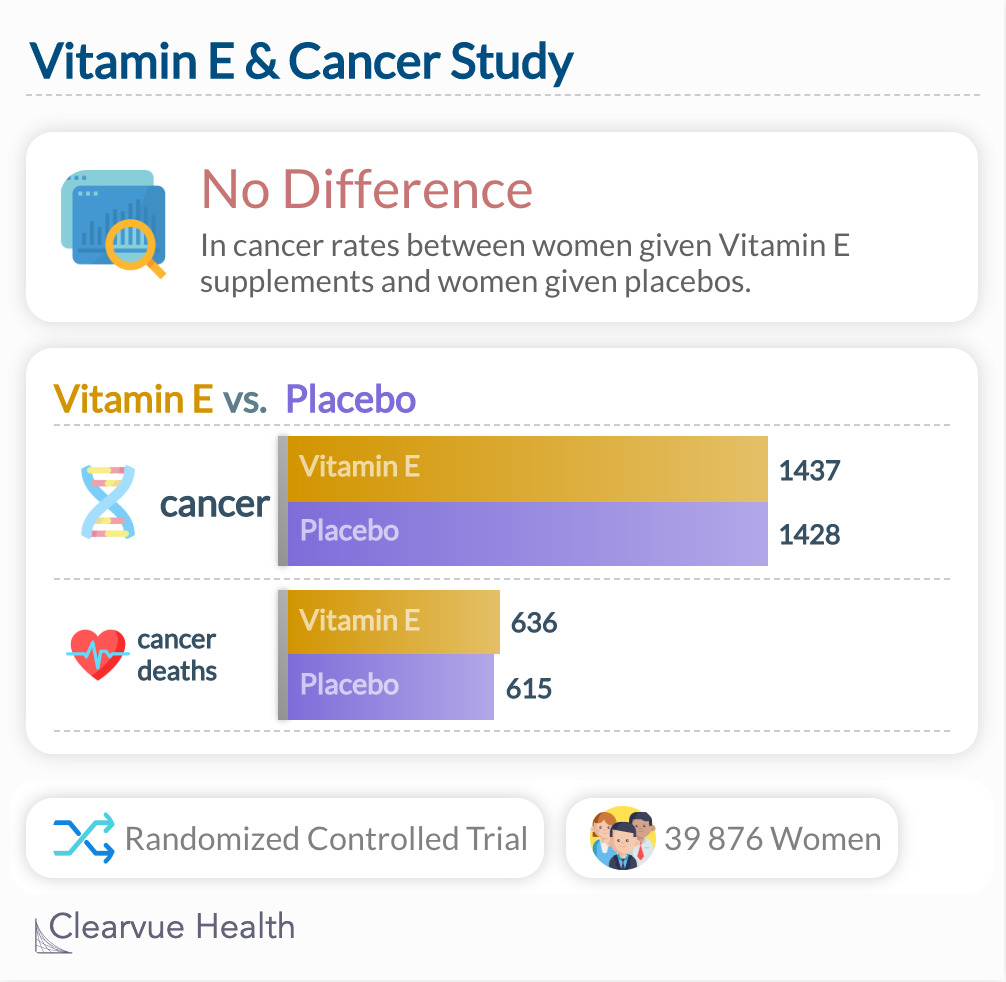
Vitamin E & Cancer Risk. A study of nearly 40,000 women found that VItamin E had no effect in preventing cancer and no effect in preventing cancer deaths. The rate of cancer was nearly equivalent between women given Vitamin E and women given a placebo: 1437 cases in the vitamin E group and 1428 in the placebo group; RR, 1.01; 95% CI, 0.94-1.08; P = .87. The results were similar for cancer deaths: 636 in the vitamin E group and 615 in the placebo group; RR, 1.04; 95% CI, 0.93-1.16; P = .53
Data Source
"The data from this large trial indicated that 600 IU of natural-source vitamin E taken every other day provided no overall benefit for major cardiovascular events or cancer, did not affect total mortality, and decreased cardiovascular mortality in healthy women. "
Study 2
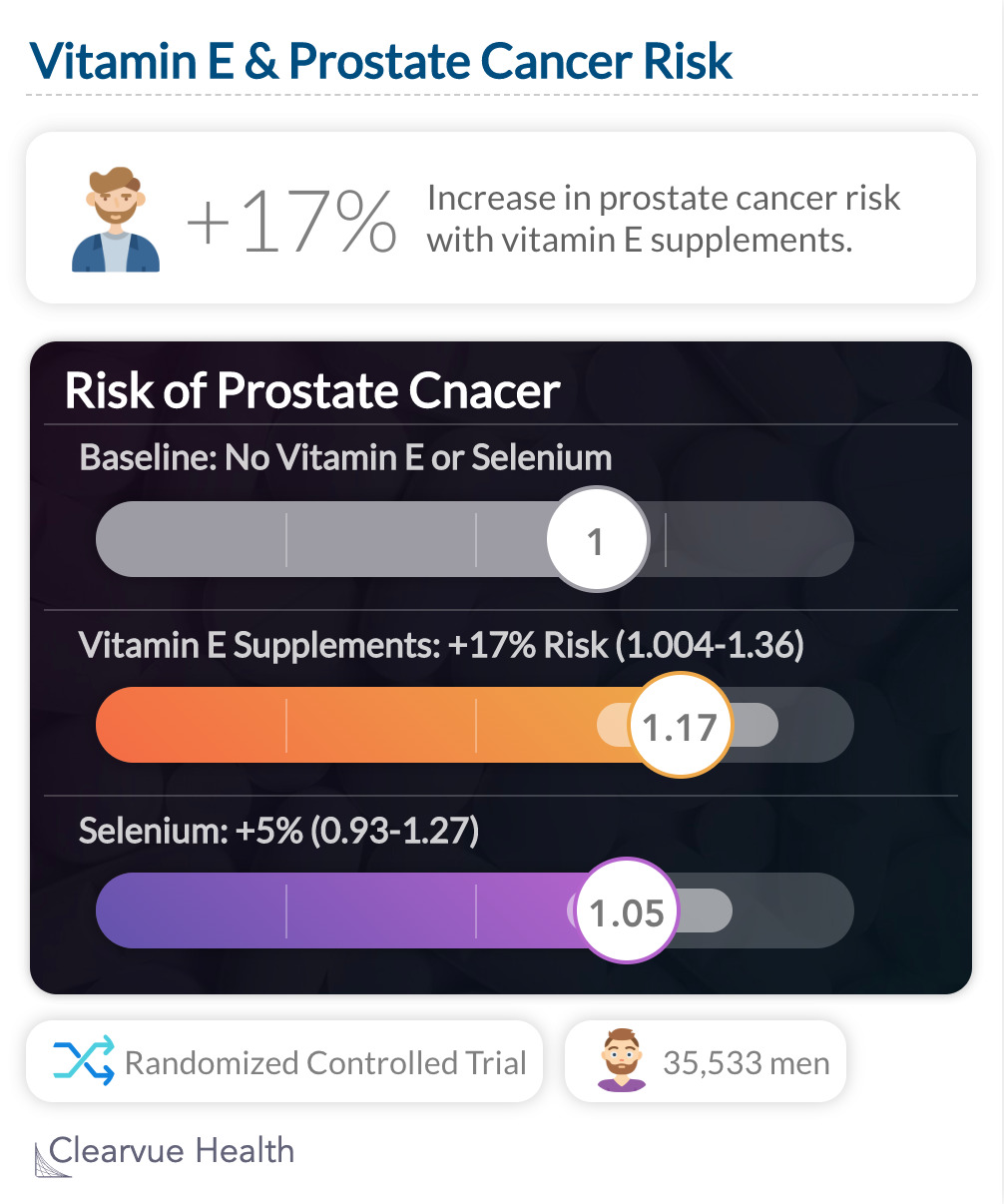
A study of 35,533 men found that Vitamin E may increase the risk of prostate cancer. Participants were given selenium, 400 IU/d of vitamin E, both, or a placebo, for 7-12 years. Researchers found that those who were given Vitamin E had a significantly higher risk of developing prostate cancer.
Data Source
"Dietary supplementation with vitamin E significantly increased the risk of prostate cancer among healthy men."
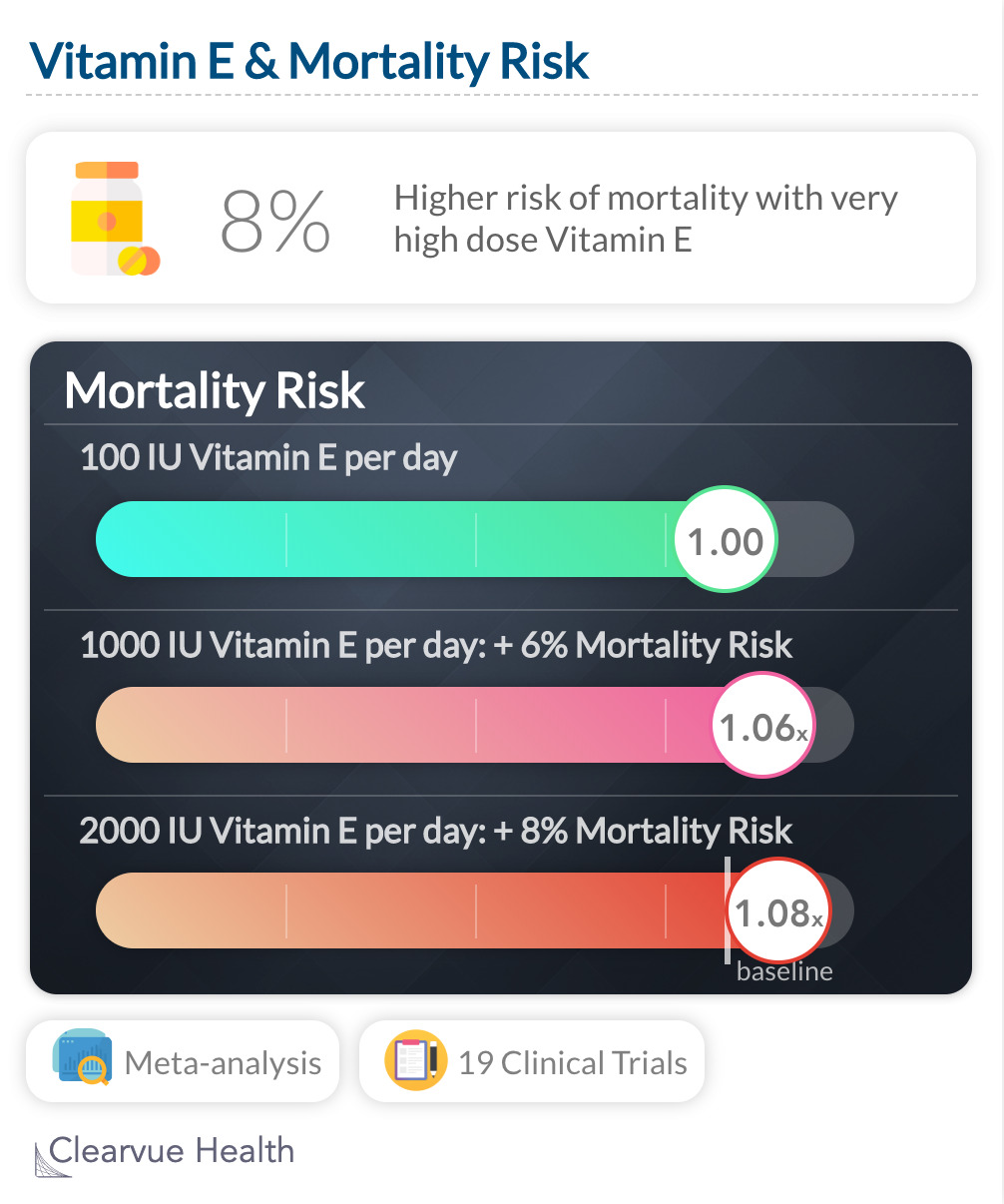
A meta-analysis that studied 19 clinical trials covering 135,967 participants found that Vitamin E supplements may be linked to higher mortality. 9/11 trials showed a higher risk of death with Vitamin E supplements. This effect was found to be highly significant, P = 0.035 for high dose Vitamin E supplements.

Our Take
While the science behind Vitamin E appears sound, clinical studies have not shown convincing evidence that taking Vitamin E for cancer prevention is a good idea. It's still possible that it may help certain groups of people, but we will need more research before we know for sure.
More Info

#cancer
Scroll for more ->
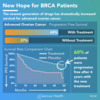
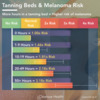
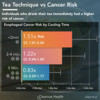
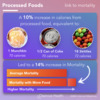
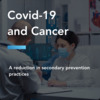
#vitamine
Scroll for more ->
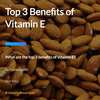
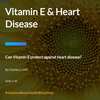
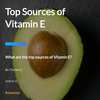


#new
Scroll for more ->
